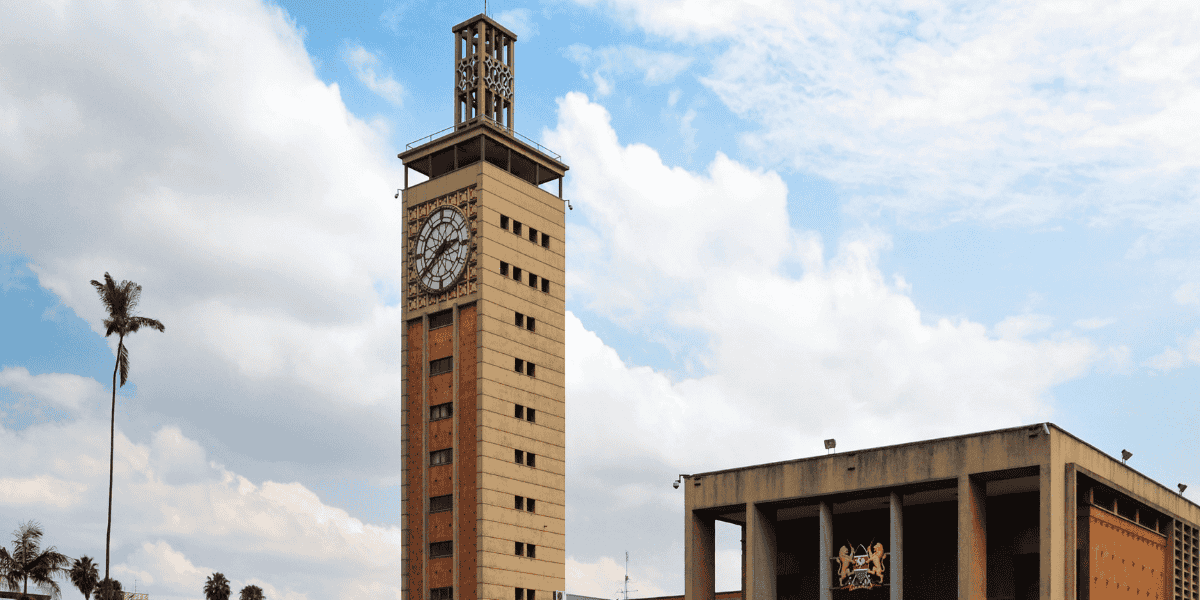Kenya’s National Assembly presented the Tax Laws (Amendment) Bill 2024 along with the Tax Procedures (Amendment) (No.2) Bill 2024 on 1 November 2024. Both Tax Laws (Amendment) Bill 2024 along with the Tax Procedures (Amendment) (No.2) Bill 2024 are currently under review at the National Assembly.
The Tax Laws (Amendment) Bill 2024 revives specific proposals initially introduced in the Finance Bill 2024, which was subsequently withdrawn after protests erupted in June 2024.
A document by the National Treasury details the key provisions of the bills, which are as follows:
Draft The Tax Laws (Amendment) Bill, 2024
The Tax Laws (Amendment) Bill, 2024 consolidates tax proposals to amend the Income Tax Act (Cap.470).
Definition of digital marketplace
The Bill seeks to amend section 3 of the Income Tax in the definition of the term “digital marketplace” by including “ride-hailing services” “food delivery services” “freelance services” “professional services” etc. This definition is relevant for taxation of income accruing from business carried out over the internet or an electronic network including through the digital marketplace. This proposal is to expand the tax base by bringing the income of the owners of the digital platforms that offer the above services into the tax net.
Definition of terms
The Bill proposes the review of the definitions of the terms; royalty, donation, public entity, registered individual retirement fund, registered pension fund, and registered provident fund.
Income from employment
The Bill seeks to amend section 5 of the Income Tax Act to enhance benefits by employers to employees not subject to tax. This proposal is intended to enhance the benefits of meals (from forty-eight thousand to sixty thousand), non-cash (from thirty-six thousand to sixty thousand) and gratuity and similar payments that are exempt from tax (from two hundred and forty thousand to three hundred and sixty thousand).
Significant Economic Presence Tax
The Bill proposes to introduce a new tax to be known as Significant Economic Presence Tax. This tax shall be payable by a non-resident person whose income from the provision of services is derived from or accrues in Kenya through a business carried out over the digital marketplace. The proposed amendment is intended to replace Digital Service Tax with Significant Economic Presence to provide for taxation at the effective rate of 6% as opposed to 1.5% under Digital Service Tax. This will align the taxation of digital services with international best practice.
Minimum Top-up Tax
Additionally, the Bill seeks to introduce a tax to be known as the minimum top-up tax. The tax is to provide for the Minimum Top-Up Tax to align the Kenya taxation of multinationals with the global best practice that prevents tax base erosion by providing that these companies pay a minimum effective tax rate of 15%. This is an additional tax that will be payable in Kenya by a Multinational Enterprise which has an effective tax rate less than 15%. The Multi-National Enterprise must have a consolidated annual turnover of 100 billion shillings.
Deduction of tax from certain income
The Bill seeks to amend section 35 to require withholding of income tax during the payments for the supply of goods to a public entity by a non-resident person at 5% and by a resident person at 0.5%; and with regards to making or facilitating payment on a digital marketplace by a non resident person at 20% and by a resident person at 5%. Notably, the rates of withholding tax payable by residents is minimal enough to ensure effective tax administration.
Income which is exempt from tax
The Bill if enacted will amend the First Schedule to the Income Tax to exempt pension payments including gratuity and other payments from a registered pension fund, registered provident fund, public pension scheme or National Social Security Fund from income tax and further remove the exemption of the income of the National Housing Development Fund.
The exemption from tax is intended to also apply to withdrawals from the funds prior to attaining retirement age due to ill health or after attaining twenty years from the date of registration as a member of the fund.
It also proposes to review paragraph 60 so as to introduce taxation of interest income from infrastructure bonds at the rate of 5%. This will apply to the bonds that will be issued from the date this provision becomes operational.
Additionally, paragraph 71 is also proposed to be reviewed to exempt non-resident contractors, sub-contractors, consultants or employees involved in the implementation of a project financed through a one hundred percent grant from income tax.
Taxation of Export Processing Zone Enterprises
The Bill amends the Eleventh Schedule to the Income Tax Act to remove the penalty for failure by EPZ enterprises to submit a return since the penalty is being provided for under the Tax Procedures Act.
The Value Added Tax Act (cap 476)
Time of supply of goods and services
The Bill amends section 12 of the Value Added Tax Act to provide that the time of supply in the case of exported goods shall be at the time when the certificate of export or such other equivalent export document is issued by customs. This is to ensure that only valid exports benefit from VAT refunds.
Credit for input tax against output tax
The Bill proposes to amend section 17 of the Value Added Tax Act to remove the threshold for applying VAT apportionment formula which allows taxpayer who make 90% of zero-rated supply to claim 100% input VAT. This amendment is to prevent abuse of the formula.
Application of East African Community Customs Management Act, 2004 to VAT
The Bill proposes that section 65 of the Value Added Tax Act be amended to expand the application of the East African Customs and Management Act for VAT purpose to exported goods.
Tax Expenditure
To mitigate the loss of revenue through unnecessary tax expenditure the Bill proposes to reclassify some goods and services as either taxable, exempt or zero rated.
The Bill proposes to reclassify from exempt status to taxable: Direction-finding compasses, instruments and appliances for aircraft; Helicopters; Specially designed locally assembled motor vehicles for transportation of tourists; Taxable goods supplied to persons that had an agreement or contract with the Government prior to 25th April 2020 and the agreement or contract provided for exemption from value added tax; Such capital goods the exemption of which the Cabinet Secretary may determine to promote investment in the manufacturing sector(Para Supply of gas meters; Betting gaming and lottery services; Hiring leasing and chattering of aircraft excluding Helicopters. Air ticketing services supplied by travel agents; entry fees into the National Parks and services of tour operators.
Further, the Bill has also proposed to reclassify the following items from zero rated to exempt: All inputs and raw materials for manufacturers of agricultural pest control products; Agricultural pest control products; Fertilisers of chapter 31 and Inputs or raw materials for manufacturers of fertiliser. The reclassification is meant to ensure that manufacturers and farmers get affordable raw materials and inputs while at the same time safeguarding revenue erosion through abuse of tax refund processes.
The Excise Duty Act (Cap. 472)
Imposition of Excise Duty
The Bill amends section 5 of the Excise Duty Act to provide those excisable services offered in Kenya by a non-resident through a digital platform shall be subject to excise duty and that it shall be paid by the non-resident person offering the service.
Goods and services not Liable to Excise Duty
The Bill amends section 7 of the Excise Duty Act to provide for remission of excise duty on spirits made from sorghum, millet or cassava or any other agricultural products (excluding barley) grown in Kenya to support our farmers that grow this produce.
Payment of Excise Duty
The Bill amends section 36 with regards to payment of excise duty. It is proposed to increase the period for payment of excise duty relating to alcoholic beverages from 24 hours to the fifth day of the following month. This is to ensure ease in administration of the tax for alcoholic beverages and minimize cash flow challenges.
Rates of Excise Duty
The Bill also makes the following amendments: increase in the rate of excise duty for imported sugar confectionary to Shs. 85.82 per kg; restructure in the rate of excise duty for wines including fortified wines, and other alcoholic beverages obtained by fermentation of fruits from Shs. 243.43 per litre to Shs. 22.50 per centilitre of pure alcohol; restructure taxation of alcoholic beverages by reviewing the excise duty rate from Shs. 142.44 per litre to Shs. 22.50 per centilitre of pure alcohol for Beer, Cider, Perry, Mead, Opaque beer and mixtures of fermented beverages with non alcoholic beverages and spirituous beverages of alcoholic strength not exceeding 6%.
Additionally, it proposes to impose excise on: Electric transformers and parts at 25%; Imported ink at 15% imported ceramic sinks, washbasins etc. at 35%; Imported float glass and surface ground or polished glass at 35%; Imported ceramic flags and pavings at 35%.
Additionally, it is proposed to revise the excise duty on excisable services such as: telephone and internet data services at 20%; and betting, gaming, price competitions and lotteries at 15%.
The Miscellaneous Fees and Levies Act (Cap 469C)
Railway Development Levy Under the Miscellaneous Fees and Levies Act, the Bill has proposed to increase the Railway Development Levy from 1.5% to 2.5%.
The Draft Tax Procedures (Amendment) Bill, 2024
Electronic tax invoices
The Bill proposes to amend section 23 A of the Tax Procedures Act to outline the information that should be included in an electronic tax invoice including the name of the supplier, the PIN, the serial number, the date and time the invoice is issued etc. This amendment is to remove ambiguity on the contents of an electronic tax invoice.
Commissioner to refrain from recovering interest, penalties or fines
The Bill proposes to re-enact section 37E of the Tax Procedures Act relating to extension of the tax amnesty until June, 2025. This amendment will allow more taxpayers to fulfil their tax obligations without suffering interest and penalties.
Relief in the case of difficulty or doubt in recovery of tax
The Bill proposes to re-enact section 37F of the Tax Procedures Act to restore the provisions that allowed Kenyans to get relief in the case of difficulty or doubt in recovery of tax. This amendment will assist taxpayers to get out of difficult tax compliance situations.
Appointment of Value Added Tax withholding agent
The Bill amends section 42A of the Tax Procedures Act to establish the offence where a withholding tax agent fails to withhold tax or fails to remit tax and sets a penalty of 10% of the amount not withheld or remitted.
Offset or refund of overpaid tax
The Bill amends section 47 of the Tax Procedures Act providing that the taxpayer who has overpaid a tax may apply to the Commissioner to offset the overpaid tax against the taxpayer’s tax debt or for refund of the overpaid tax. This provision is beneficial to taxpayers to ensure that they can get relief where they have an overpayment of taxes.












